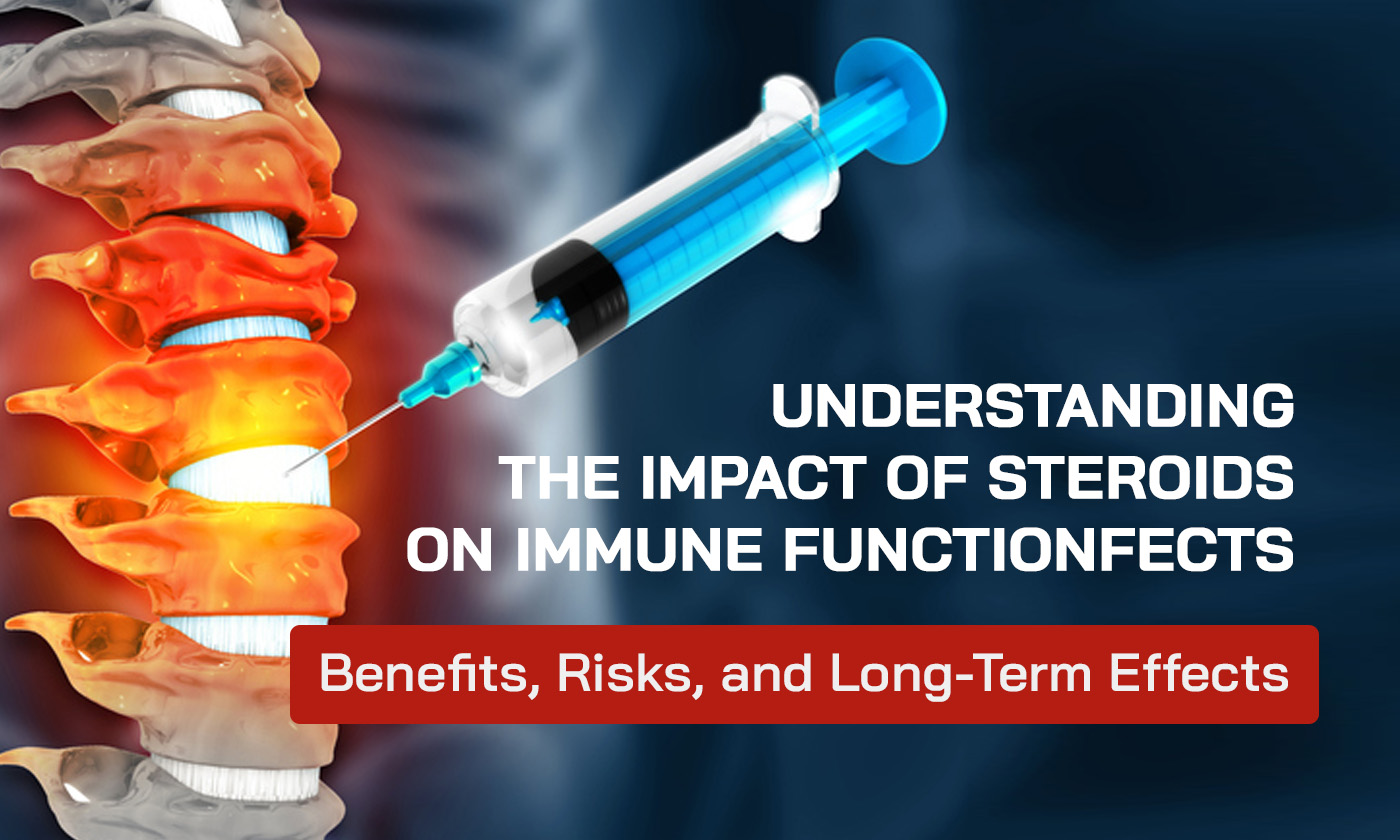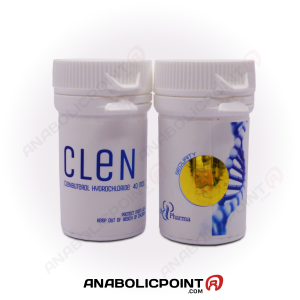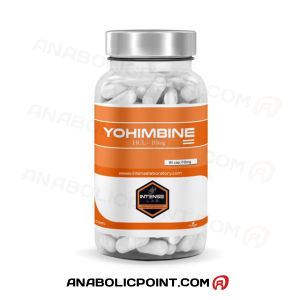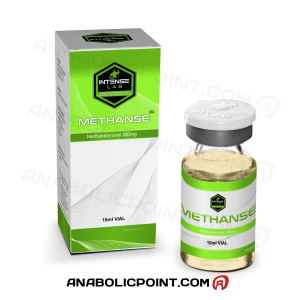Your basket is currently empty!
Understanding the Impact of Steroids on Immune Function: Benefits, Risks, and Long-Term Effects

Steroids are powerful compounds that play a critical role in both medical treatment and athletic performance enhancement. With significant effects on muscle growth, inflammation, and energy levels, steroids are widely used in managing a range of health conditions and in boosting physical performance. However, one of the most profound—and often misunderstood—effects of steroids is their impact on the immune system. Steroids can either suppress or enhance immune function, depending on the type, dosage, and duration of use.
While some steroids are prescribed to dampen an overactive immune response, particularly in autoimmune diseases, other steroids may impact the immune system in ways that can make the body more vulnerable to infections or other complications. This complex relationship between steroids and immune function is particularly important for patients on long-term steroid therapy and athletes who may use steroids for performance enhancement. Understanding how steroids influence the immune system is essential for anyone considering or currently using them.
In this article, we’ll examine the different types of steroids, their various roles in the body, their effects on immune function, and the associated risks and benefits. We will also discuss the implications of long-term steroid use and explore alternatives for managing immune health.
Types of Steroids and Their Uses
Steroids fall into two main categories: corticosteroids and anabolic-androgenic steroids (AAS). Each type affects the body differently, particularly in how it interacts with the immune system.
- Corticosteroids Corticosteroids are synthetic drugs designed to mimic cortisol, a hormone produced by the adrenal glands. They are widely used in medicine to treat inflammation and autoimmune disorders. Corticosteroids, such as prednisone, hydrocortisone, and dexamethasone, suppress the immune system’s inflammatory response, making them invaluable for managing conditions like rheumatoid arthritis, asthma, lupus, and other inflammatory diseases.
- Anabolic-Androgenic Steroids (AAS) Anabolic steroids are synthetic forms of testosterone and are used primarily to build muscle and enhance athletic performance. They also have some therapeutic applications, such as in treating muscle-wasting diseases and helping patients regain strength after prolonged illness or surgery. Unlike corticosteroids, anabolic steroids do not have significant anti-inflammatory effects and do not directly suppress the immune response. However, long-term use of anabolic steroids can still affect immune function through indirect mechanisms, including hormonal imbalances and stress on the body.
Each of these steroids affects the immune system in unique ways, which can have both beneficial and adverse outcomes depending on the purpose, dosage, and duration of use.
How Corticosteroids Affect Immune Function
Corticosteroids are potent immune suppressors, acting on multiple levels of the immune system. While these effects can be beneficial in treating inflammatory and autoimmune conditions, they also create risks by lowering the body’s ability to defend itself against infections and other threats.
- Reduction of Inflammatory Response Corticosteroids work by blocking the production of inflammatory cytokines, which are signaling molecules that trigger inflammation. While this suppression is essential in conditions like arthritis, it also means that the immune system is less responsive to potential infections. This dampening of inflammation helps control pain and swelling but can make it more challenging for the body to mount a strong response against pathogens.
- Impact on White Blood Cells Corticosteroids can reduce the activity and count of certain white blood cells, particularly T-cells and neutrophils, which are crucial in fighting infections. By limiting the body’s natural immune response, corticosteroids effectively suppress the immune system, reducing the ability to fight off bacteria, viruses, and fungi.
- Immunosuppression and Vulnerability to Infections While immunosuppression is a necessary treatment in certain conditions, it can leave the body more vulnerable to common and opportunistic infections. Patients on corticosteroid therapy are at a higher risk for infections like pneumonia, urinary tract infections, and fungal infections. The longer the therapy, the more compromised the immune system becomes, which is why corticosteroid treatment is generally prescribed in short bursts or gradually tapered down to avoid prolonged immune suppression.
- Risk of Secondary Infections Immunosuppression can lead to secondary infections, including bacterial, viral, and fungal infections. For example, prolonged corticosteroid use is linked with an increased risk of reactivating latent infections, such as herpes simplex virus and tuberculosis. The suppressed immune state may allow these dormant infections to become active, causing complications that are difficult to treat in immunocompromised patients.
- Dose-Dependent Effects The effect of corticosteroids on immune function is often dose-dependent. Lower doses are generally used for maintenance in chronic conditions, while higher doses are administered for acute flare-ups. High doses of corticosteroids are associated with a more significant degree of immunosuppression, which can be beneficial for severe inflammation but can also increase the risk of infection.
Anabolic Steroids and Their Indirect Effect on Immune Function
Anabolic steroids do not directly suppress immune function the way corticosteroids do, but they can still have indirect effects on the immune system, especially with long-term use.
- Hormonal Imbalances Anabolic steroids elevate testosterone levels, which can impact immune health. Testosterone has been shown to have some immunosuppressive properties, meaning that higher testosterone levels may slightly lower immune function. In athletes who use anabolic steroids over extended periods, the disruption in hormone levels may lead to a weakened immune response, increasing the risk of infection and illness.
- Oxidative Stress Long-term anabolic steroid use has been linked to increased oxidative stress, which can weaken immune defenses. Oxidative stress refers to an imbalance between free radicals and antioxidants in the body, and it can damage cells, including immune cells. This cellular damage can impair the immune system’s ability to respond effectively to threats, leaving the body more vulnerable to infections.
- Impact on Liver and Kidney Health Anabolic steroids can stress the liver and kidneys, which play essential roles in detoxifying the body and maintaining immune health. Over time, the damage to these organs can impact immune function indirectly by reducing the body’s ability to eliminate waste and fight infections.
- Psychological and Physical Stress The physical and mental stress caused by anabolic steroid use can affect the immune system. The hormonal fluctuations and intense physical demands placed on the body by performance-enhancing steroid use can contribute to immune suppression, making users more susceptible to illnesses and infections.
Long-Term Effects of Steroid Use on Immune Health
The long-term effects of steroid use on immune health can vary significantly, depending on the type of steroid, dosage, and duration of use. Long-term corticosteroid therapy, for example, can lead to chronic immunosuppression, leaving individuals vulnerable to recurrent infections and slower recovery. Anabolic steroids, though not directly immunosuppressive, can weaken immune defenses indirectly through stress and hormonal imbalances.
Chronic steroid use is associated with several specific risks:
- Increased Susceptibility to Infections
Over time, both corticosteroids and anabolic steroids can compromise the immune system, making users more susceptible to infections. This increased risk can result in frequent infections that may be difficult to manage due to the weakened immune state. - Delayed Recovery and Healing
Steroid users, particularly those on corticosteroid therapy, may experience delayed recovery from injuries and infections. The immune system plays a significant role in wound healing and fighting off infections, so any suppression or impairment can lead to slower recovery times. - Reactivation of Latent Infections
Long-term corticosteroid use is linked to the reactivation of latent infections. Dormant infections like herpes simplex or tuberculosis can become active in immunocompromised individuals, leading to severe health complications. - Potential for Autoimmune Rebound
When corticosteroid treatment is stopped abruptly, the immune system can react by overcompensating, leading to a phenomenon known as autoimmune rebound. This reaction can result in an exacerbation of symptoms or even new autoimmune responses as the body tries to regain immune balance. - Hormonal and Systemic Imbalances
Prolonged anabolic steroid use can lead to systemic imbalances, affecting not only the immune system but also organs such as the liver, kidneys, and heart. These imbalances can indirectly compromise immune function and overall health.
Exploring Alternatives and Mitigating Immune Impact
To reduce the negative impact of steroids on immune health, healthcare providers may suggest alternative therapies or adjunctive treatments that can help manage conditions without relying on high-dose or long-term steroid use.
- Tapering and Dosage Control
In corticosteroid therapy, tapering the dosage gradually can help reduce the risk of rebound immune responses and give the immune system time to readjust. Doctors may prescribe lower doses for maintenance to minimize long-term immune suppression. - Immune-Supportive Lifestyle Adjustments
For individuals on anabolic steroids, maintaining a healthy lifestyle with balanced nutrition, regular exercise, and stress management can support immune function. Proper diet, sleep, and hydration are essential for keeping the immune system resilient. - Adjunctive Therapies
Non-steroidal treatments such as anti-inflammatory drugs, immunomodulators, and physical therapy can be used alongside or instead of steroids for conditions like arthritis or autoimmune diseases. These alternatives can help manage symptoms without excessive immune suppression. - Regular Monitoring
Regular health monitoring, including blood tests, can help identify early signs of immune suppression or infection. For long-term steroid users, routine check-ups can prevent complications and allow for adjustments to treatment as needed.
Final Thoughts on the Relationship Between Steroids and Immune Health
Steroids have a profound effect on immune function, and their use requires a delicate balance of therapeutic benefit and potential risk. Corticosteroids provide vital anti-inflammatory effects that are essential in treating autoimmune and inflammatory diseases, yet their immunosuppressive qualities can lead to infections and immune complications. Meanwhile, anabolic steroids, although not directly immunosuppressive, can also compromise immune health through hormonal and systemic imbalances when used in high doses or for extended periods.
Understanding the impact of steroids on immune health allows users and medical professionals to make informed decisions. By carefully managing dosages, exploring alternative therapies, and closely monitoring health, it is possible to harness the benefits of steroids while minimizing risks to immune function.
Frequently Asked Questions About Steroids and Immune Function
- How do corticosteroids affect immune function?
Corticosteroids suppress immune function by reducing inflammation, lowering white blood cell counts, and dampening the body’s response to infections. - What are the risks of long-term corticosteroid use on immunity?
Long-term use can lead to increased infection risk, delayed healing, and the reactivation of latent infections. - Do anabolic steroids suppress the immune system?
Anabolic steroids do not directly suppress the immune system but can weaken it indirectly through hormonal imbalances and oxidative stress. - Can steroids make you more susceptible to infections?
Yes, especially corticosteroids, which lower immune response, increasing the likelihood of infections. - How can steroid users support their immune function?
Maintaining a healthy diet, staying hydrated, reducing stress, and gradually tapering steroid doses can help support immune health. - Is it safe to use steroids during an infection?
Doctors may avoid steroids in active infections unless necessary, as steroids can hinder the body’s ability to fight infections. - What is immune rebound after steroid withdrawal?
Immune rebound occurs when the immune system overreacts after corticosteroid withdrawal, potentially causing symptoms to flare. - Can steroids affect vaccination effectiveness?
Yes, steroids can reduce immune response to vaccines, so doctors may adjust dosages or schedules for vaccinated individuals on steroids. - Are there alternatives to steroids for immune-related conditions?
Alternatives include NSAIDs, immunomodulators, and physical therapy, depending on the specific condition. - What steps can be taken to minimize the immune impact of steroids?
Gradual dose reduction, lifestyle support, adjunctive therapies, and regular monitoring can help mitigate immune impacts.













